Are you familiar with pronouns and the types of them? Pronouns would probably be the second topic you learn under components of speech. Words that are used in place of nouns are called pronouns. In this article, you will learn pronouns and their types, including definitions, and usage in sentences.
What is a Pronoun?
It uses a pronoun instead of a noun. It substitutes the noun for itself in a paragraph or other written piece to stop it from occurring again. You can use singular or plural pronouns. The phrase’s verb choice must correspond to the particular pronoun form being used.
Also Read:
Types of nouns…
Parts of Speech…
10 types of Pronouns:
- Personal Pronouns
- Possessive Pronouns
- Reflexive Pronouns
- Demonstrative Pronouns
- Interrogative Pronouns
- Indefinite Pronouns
- Relative Pronouns
- Reciprocal Pronouns
- Intensive Pronouns
- Distributive Pronouns
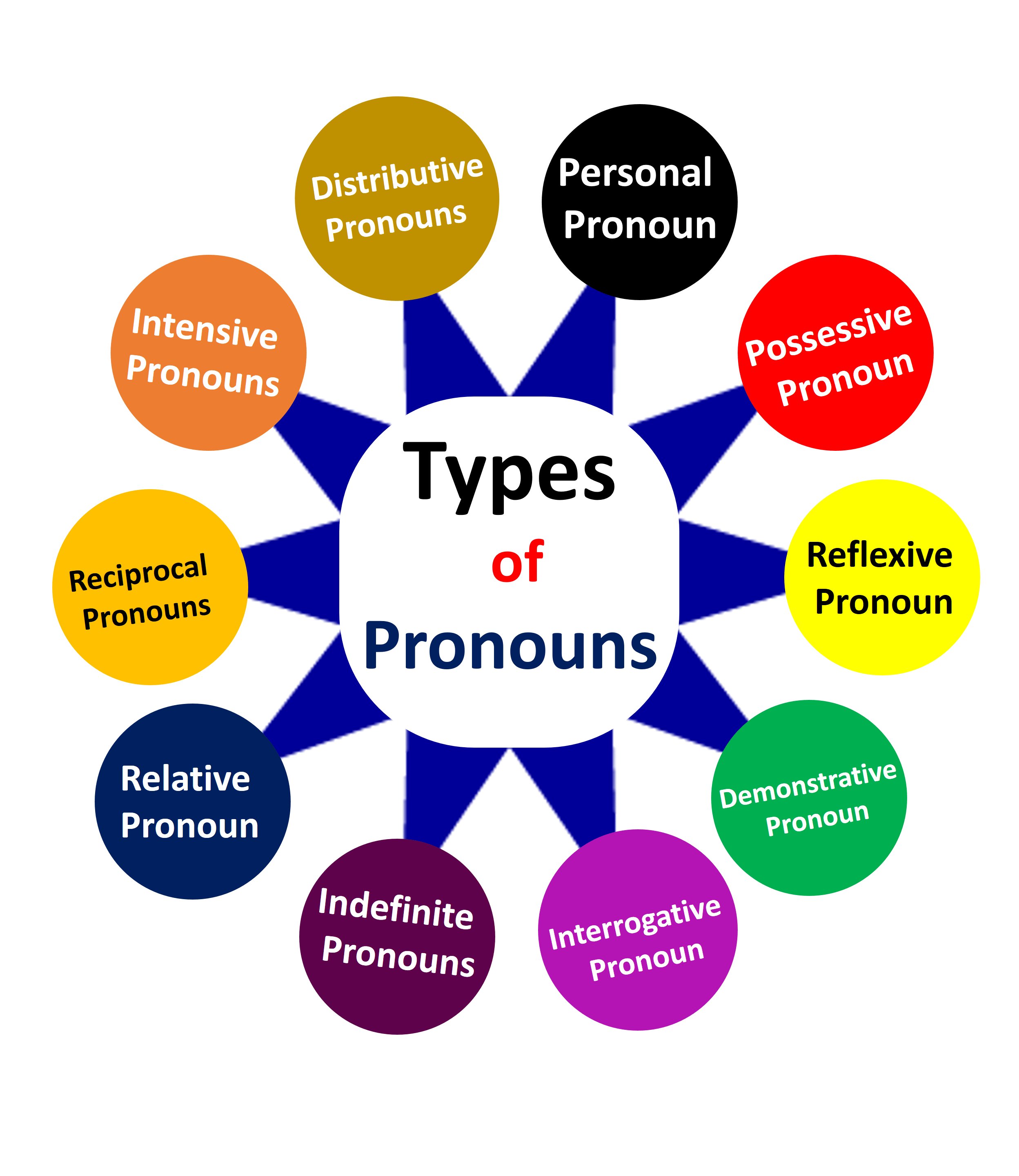
10 Pronouns and their Types, Definitions, and Examples:
Personal Pronouns
- Definition: Personal pronouns are used to replace specific nouns referring to people or things.
- Examples: I, you, he, she, it, we, they
- Example sentences:
- She is going to the store.
- We are having dinner together.
Possessive Pronouns
- Definition: Possessive pronouns show ownership or possession without the need for a noun.
- Examples: mine, yours, his, hers, its, ours, theirs
- Example sentences:
- The book is mine.
- Is this pen yours?
Reflexive Pronouns
- Definition: Reflexive pronouns are used when the subject and the object of a sentence are the same.
- Examples: myself, yourself, himself, herself, itself, ourselves, yourselves, themselves
- Example sentences:
- She hurt herself while playing.
- We made the cake ourselves.
Demonstrative Pronouns
- Definition: Demonstrative pronouns point to specific things or people.
- Examples: this, that, these, those
- Example sentences:
- I want that one.
- These are the shoes I bought.
Interrogative Pronouns
- Definition: Interrogative pronouns are used to ask questions.
- Examples: who, whom, whose, what, which
- Example sentences:
- Who is coming to the party?
- What do you want for dinner?
Indefinite Pronouns
- Definition: Indefinite pronouns refer to nonspecific people or things.
- Examples: anyone, someone, everyone, nobody, everything, anything, all, some, any, none, each, few, many, several, both
- Example sentences:
- Everyone enjoyed the movie.
- Some of the cookies are gone.
Relative Pronouns
- Definition: Relative pronouns introduce relative clauses.
- Examples: who, whom, whose, which, that
- Example sentences:
- The person who called left a message.
- This is the book that I was talking about.
Reciprocal Pronouns
- Definition: Reciprocal pronouns indicate mutual action or relationship among individuals.
- Examples: each other, one another
- Example sentences:
- They love each other.
- The teams competed against one another.
Intensive Pronouns
- Definition: Intensive pronouns emphasize a preceding noun or pronoun.
- Examples: myself, yourself, himself, herself, itself, ourselves, yourselves, themselves
- Example sentences:
- I myself will take care of it.
- They did the work themselves.
Distributive Pronouns
- Definition: Distributive pronouns refer to members of a group separately.
- Examples: each, either, neither
- Example sentences:
- Each of the students received a certificate.
- You can choose either option.
Image of Pronouns and their Types:
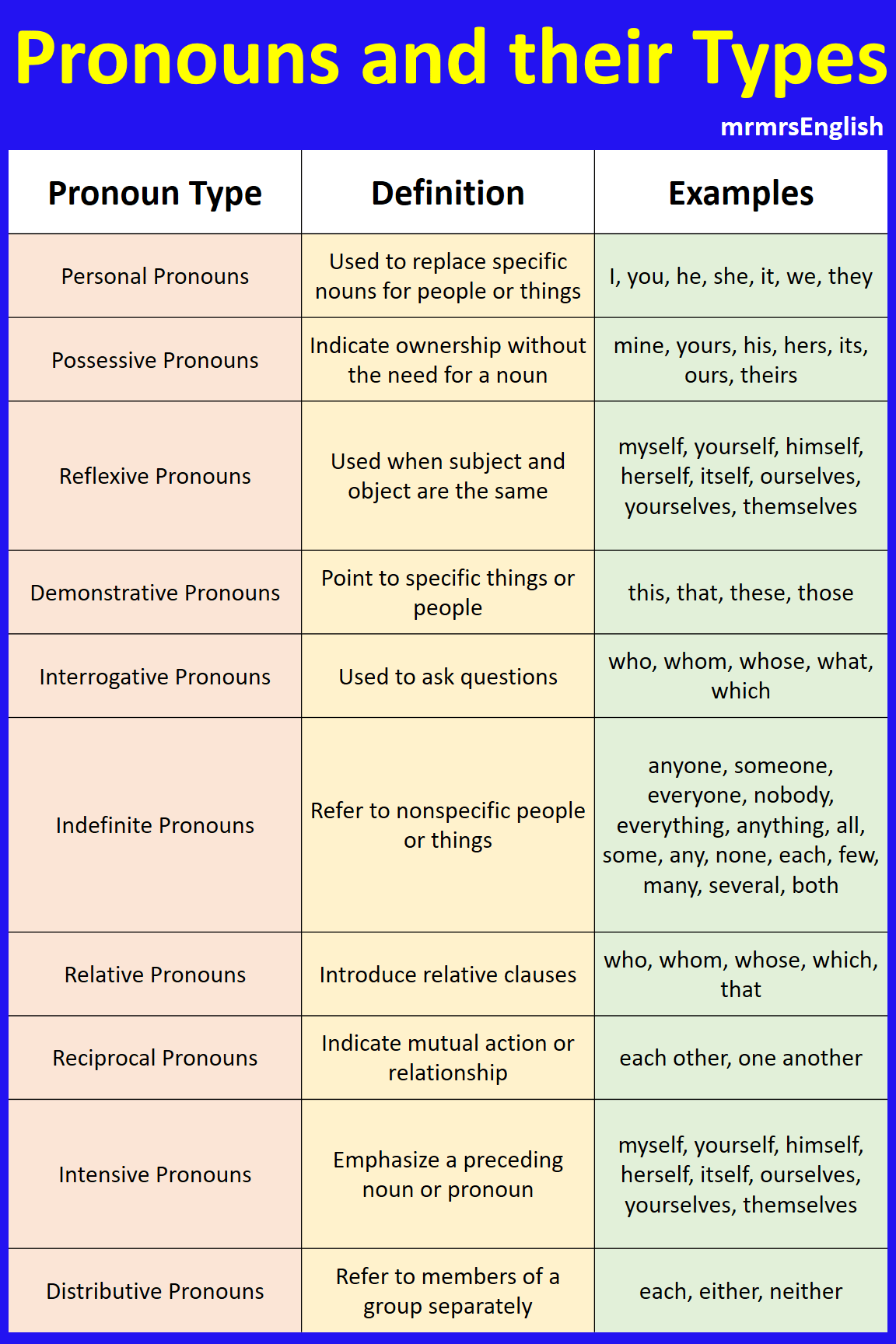

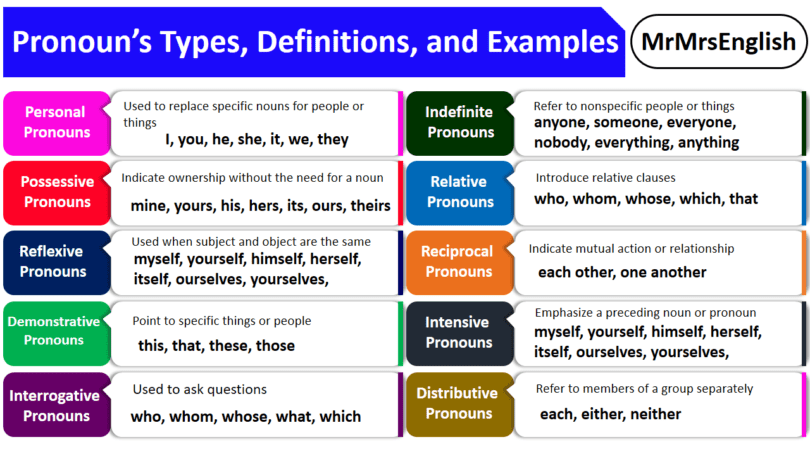

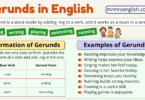
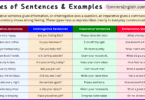
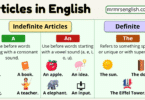
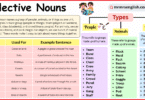
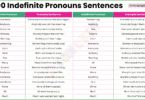
Leave a Comment